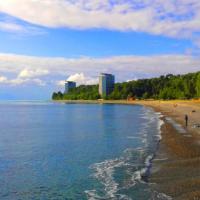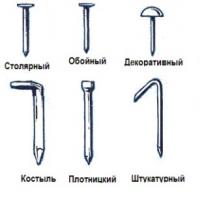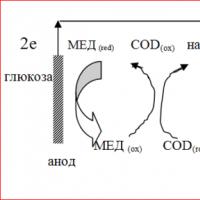Ishchenko new articles. Ishchenko latest news and publications now. Warsaw tour of the Kyiv circus
Political scientist Rostislav Ishchenko - the latest videos cover the current situation in Ukraine and the military-political situation in Donbass. Analysis of international politics from a leading expert on the countries of the former Soviet Union.
Rostislav Ishchenko in the Formula of Meaning program (video) last 09/20/2019 Ukraine and Donbass
Political scientist Ishchenko in the Formula of Meaning program from 04/26/2019 Ukraine and Donbass
In today's meeting, political scientist Ishchenko and presenter Kulikov discussed Ukraine after the elections and Russian passports for Donbass. Why the possibility of issuing Russian citizenship has appeared right now and what the law on languages in Ukraine leads to.
Rostislav Ishchenko - Formula of meaning (video) 03/29/2019 Ukraine and elections
The election race in Ukraine remains a central topic for political scientists. Petro Poroshenko is losing ground in the rankings, but looks confidently into his own future. Why some deputies are leaving the ruling faction in the Verkhovna Rada.
Political scientist Ishchenko - Formula of meaning (video) latest 02/22/2019 Ukraine is preparing a provocation?!
According to political scientist Ishchenko, Petro Poroshenko is ready to commit a new provocation in the Kerch Strait. A weak rating in the election race forces the current president of Ukraine to take a desperate step.
Political scientist Ishchenko - Formula of meaning 02/15/2019 Ukraine today
The political situation in Ukraine remains the focus of political scientist Ishchenko. Will Petro Poroshenko give up the presidency and which of the contenders has a better chance? Behind the scenes intrigues and the struggle continues.
Political scientist Ishchenko - Formula of meaning (video) 11/23/2018 Is Ukraine changing the constitution?!
Latest events in Ukraine from political scientist Rostislav Ishchenko and presenter Dmitry Kulikov on Vesti-FM. Why did Petro Poroshenko need changes to the constitution and what will an irresponsible approach to the basic law of the state lead to the country.
Political scientist Ishchenko in the Formula of Meaning program (video) 09-11-2018 Marchuk agreed on the peacekeepers?
Today’s speech by political scientist Ishchenko in the Formula of Meaning program began with a discussion of the coordination of peacekeepers in Donbass. Who needed searches of public activists in Kyiv and what to expect from Poroshenko.
Rostislav Ishchenko - Formula of meaning (video) 02-11-2018 Sanctions against Ukraine
In today's program Formula of Meaning, political scientist Rostislav Ishchenko and presenter Dmitry Kulikov discussed the current situation in Ukraine. Russian sanctions against Ukrainian politicians and Angela Merkel’s visit to Kyiv.
Formula of meaning last issue 02/02/2018
In today's episode of Formula of Meaning, Rostislav Ishchenko and Dmitry Kulikov discussed new militant groups in Ukraine. Who controls the created structure, what are its goals and what to expect from them. At whose expense are the “people's squads” financed and what will they do in the near future?
Full release of Formula of Meaning February 2 discusses: Russian athletes acquitted; the cold war is an alternative to the hot war; Putin's meeting with trusted officials.
Rostislav Ishchenko latest
Political scientist Ishchenko, Dmitry Kulikov and Gia Soralidze discussed the current situation in Russia and the world. Ukraine is heading towards destabilization at all times, the Americans need new conflicts. Unlike past centuries, when they fought for land, today they fight for income, says Ishchenko. Americans are losing income and they don't like it. Video .
Full release of Formula of Meaning discusses:
- Dialogue on Syria in Sochi
- A year of Trump's presidency - guest Mikhail Leontyev
- 100 years since the dissolution of the constituent assembly
- Ishchenko about Ukraine
Political scientist Rostislav Ishchenko - last interview on the Politvera channel
As Rostislav Ishchenko said, the latest news from Ukraine, namely the law of deoccupation of Donbass, did not bring anything new to the life of the country. On the one hand, Petro Poroshenko dreams of staying in power for as long as possible, and on the other, there is a group of Ukrainian oligarchs who want to overthrow the current president for their own selfish interests.
The seventh meeting of the High-Level Strategic Council, the opening of the Ukrainian Consulate and the Ukrainian House cultural center in Antalya, a visit to Istanbul University, the opening of an exhibition of archival documents dedicated to the centenary of diplomatic relations between Ukraine and Turkey. The visit program announced by the Ukrainian Foreign Ministry is not impressive: the seventh meeting of the High-Level Strategic Council level, the opening of the Ukrainian Consulate and the Ukrainian House cultural center in Antalya, a visit to Istanbul University, the opening of an exhibition of archival documents dedicated to the centenary of diplomatic relations between Ukraine and Turkey
Against this background, only a personal meeting looks more or less serious Poroshenko With Erdogan. And then, it will obviously be held in the format of the same Strategic Council, that is, it will be a relatively short one-on-one conversation either before or after the general meeting of delegations - a kind of tribute to diplomatic politeness.
This is Poroshenko’s third trip to Turkey in 2018. For the first time, in April, Pyotr Alekseevich suddenly arrived in Istanbul, where at the airport: as the Turkish side deliberately emphasized, “on his feet” he spoke with Erdogan, who was flying to Ankara. Then the Turks, apparently, did not really understand why they were flying in and what the Ukrainian guest wanted to say.
Then, on June 12, Poroshenko was sixth among the leaders of states who arrived in Turkey for the solemn ceremony of launching the TANAP gas pipeline, through which Azerbaijani gas, bypassing Ukraine, went through Turkey to the Balkans. Then the situation turned out to be extremely comical. Leaders of countries interested in the gas pipeline gathered. Someone, like Azerbaijan, exports gas through this gas pipeline. Some, like Türkiye, are a transit country for 10 billion. cube m, as well as the recipient of 6 billion cubic meters. m of gas (about one third of the total capacity of the gas pipeline). Another 2/3 (10 billion cubic meters) went through TANAP to Bulgaria and Serbia, whose leaders were also at the opening. Finally, the leader of the Turkish Republic of Northern Cyprus was present because he heads the de facto Turkish protectorate. And only Poroshenko, like a child, was happy that a gas pipeline bypassing Ukraine had been built through the territory of Turkey, albeit slightly, but reducing Europe’s dependence on the Ukrainian gas transportation system.
This time, Pyotr Alekseevich is going to discuss, within the framework of the Strategic Council and a personal meeting with Erdogan, a wide range of problems (political, economic, military, cultural, tourism and others) of bilateral cooperation. There are no plans to sign any documents. So it will just be general conversations. In the best case, Ukrainian diplomats will figure it out and be able to squeeze some kind of memorandum of understanding out of the Turks based on the results of discussing the problems.
Why am I so skeptical about this visit?
Because in diplomacy nothing happens without preparation. Meanwhile, Ukraine did not conduct any serious negotiations with Turkey, either through the Ministry of Foreign Affairs or through other departments. Apparently, in search of a reason for another visit, they simply combed through the database on bilateral relations and remembered the Strategic Council. Unlike simply opening a consulate and going to an exhibition, it sounds beautiful; there is no shame in taking the president to Istanbul for this purpose. And Erdogan will not get away with it - he will have to be present - the body was created at the presidential level.
Next, to the question of the Council itself. It was established by Ukraine and Türkiye (Yanukovych and Erdogan) in 2011. Ukraine was still subjective enough to try (albeit clumsily) to maneuver between Russia and the EU. For Turkey, it looked like a fairly attractive economic and political partner, cooperation with which would allow it to play a more active role in Eastern European politics and increase its value in contacts with Russia and the EU. In addition, Ukraine then had Crimea, in which the Crimean Tatars, under the care of Turkey, lived. Ankara and Kiev had something to discuss, and the Council, as a bilateral body providing interaction on a wide range of issues up to the presidential level, seemed to be a very promising structure for solving operational problems.
Much water has passed under the bridge since then. Ukraine does not represent any political or economic interest, Crimean Tatars live in Russia, and the Kyiv authorities are only able to ask for: money, political support and economic sanctions against Russia. Turkey is not able to give them either one, or the other, or the third - it itself does not have enough.
Hence the simple conclusion: Poroshenko, on the eve of the official start of the presidential election campaign, which unofficially started a long time ago, is trying to portray himself as a statesman on a global scale, who is taken into account throughout the world. And then there was luck. Turned out well at first Angela Merkel, who dropped into Kyiv to unofficially call to order local politicians who were too naughty with matches and could burn down their house before Germany took all the necessary fire-prevention measures, causing sparks on everyone. Now, the Foreign Ministry has remembered the Strategic Council - the name is worth it.
People, he will only remember names and surnames. If the guests are important, and the names are impressive, then no one is interested in what Poroshenko did with them - “it’s none of our business, such respected people will not go to just anyone and consult with just anyone “strategically.”
It is unlikely, of course, that this will help Poroshenko. People are talking about such meetings, in contrast to the increase in gas prices and utilities, forgets instantly. But you can try.
I am surprised that the program does not include a meeting with Bartholomew. The Istanbul Patriarch, who dreams of seizing control over Ukrainian Orthodoxy, will not refuse a meeting with Poroshenko. These two always have something to discuss, at least the schismatic Philaret, who persists in his unwillingness to submit to Constantinople. And for Pyotr Alekseevich this is the most advantageous meeting in terms of topic and result, including information output, of all possible in Istanbul. It is unlikely that he is in such a hurry to open a consulate in Antalya that he is not able to find a couple of hours for his Tomos accomplice.
It can be assumed that the Turks insisted that Bartholomew not be mentioned in the announcements, but that Poroshenko, if he wished, meet with him privately. Erdogan, both from the point of view of his domestic political interests and from the point of view of his foreign policy course, is not interested in appearing with Bartholomew in the same announcement. This does not take into account the fact that Bartholomew is focusing on the United States, with which Erdogan is in conflict. So the Turkish side could well have raised the issue head-on, on the principle of either a meeting with the president, or a mention of Bartholomew in official announcements.
It will be much worse for Poroshenko if the Turks insisted that there should be no meeting at all. It is unlikely that they went that far, but, in principle, they could. Of course, Bartholomew will not be offended; he is accustomed to humiliation from the Turkish authorities - that’s his position. But Poroshenko himself, if there is no meeting with Bartholomew, would be better off not going to Istanbul.
Attentive, vigilant and timid Ukrainian schismatics would understand such a signal clearly - the Turks are demonstrating their displeasure with Bartholomew’s actions in Ukraine and can take further measures. This will weaken their confidence in their victory and undermine their activity. Meanwhile, it is the autocephalists who make up the strike force of Poroshenko’s election campaign, which has not formally begun yet, but has actually been going on for a long time. So Poroshenko’s position in Ukraine will be under attack.
However, as I already said, a quiet meeting is more likely, which later, after the visit, will be trumpeted by the Ukrainian media as another great victory for Poroshenko and autocephaly. In any case, I personally don’t see anything else that Pyotr Alekseevich could get out of his flight to Istanbul.
popular internet
More on the topic

E. Nikiforov: - Rostislav Vladimirovich, what is happening in Ukraine now? Elections took place, Zelensky was inaugurated. High hopes...more
The high-level week, which traditionally opened the current 74th session of the UN General Assembly, seems to have determined the result of the event initiated by the American “philistinism in the nobility” and the Russian kick of the presumptuous philistine. Spokesperson for the Russian Foreign Ministry Maria Zakharova reacted to the publication by Bely...
26.09.2019
Political scientist, president of the Center for System Analysis and Forecasting Rostislav Ishchenko told in his vlog on the YouTube channel of the Ukraina.ru publication whether Andrei Parubiy will be sent to prison. The State Bureau of Investigation of Ukraine opened a criminal case against Parubiy in the Odessa case...
26.09.2019
The presidential election campaign in the United States has not yet begun, but Trump has already demonstrated that his strategic abilities to conduct a maneuverable information war, in the face of the enemy’s superiority in forces and means, have not only not been dulled over time...
25.09.2019
The US President is having a busy time. Another election campaign is upon us. The Democrats technologically blocked his foreign policy initiatives in the first two years of his presidency and, relying on their people in the State Department and in military circles, are actively sabotaging...
25.09.2019
Political scientist Rostislav Ishchenko believes that British Prime Minister Boris Johnson chose the right policy by deciding to withdraw the country from the EU without an agreement. He explained his point of view in the section “Ishchenko answers questions from viewers” on the YouTube channel of the publication Ukraina.ru. Previously British...
25.09.2019
Political scientist, president of the Center for System Analysis and Forecasting, columnist for MIA Rossiya Segodnya Rostislav Ishchenko answered a number of questions from the online magazine PolitRussia: - Trump and Biden: whose victory in the 2020 elections is more realistic? - USA: who supports Democrats and who supports Republicans?...
24.09.2019
Oligarch Rinat Akhmetov will have a chance to make up the gap with businessman Igor Kolomoisky if a strong opposition forms in power. Political scientist Rostislav Ishchenko stated this in the column “Ishchenko answers questions from viewers” on the YouTube channel of the publication Ukraina.ru. According to him...
24.09.2019
The European Parliament (EP) adopted a resolution with a beautiful and, most importantly, almost correct title: “On the importance of European memory for the future of Europe.” That is, it turns out that there is a certain separate historical “European memory” that only EU countries possess. It's even scary...
24.09.2019
The new young Ukrainian government is being criticized. A lot of bad things are said and written about him and about Prime Minister Alexei Goncharuk. They say they have no specialized education, no work experience, in general they are pathetic Soros grant eaters, throughout their worthless...
23.09.2019
Before October 1, the Ukrainian government must submit several bills to the Verkhovna Rada to ensure the country’s economic growth. This is stated in the decree of Vladimir Zelensky. The most important measures in this direction will be the lifting of the moratorium on the purchase and sale of land...
22.09.2019
On the morning of September 20, protests took place throughout Ukraine against the decision of the President of the Republic, Vladimir Zelensky, to lift the moratorium on the sale of land. The organizer was the All-Ukrainian Agrarian Council, which is confident that the country will be sold to foreigners through legal...
22.09.2019
Political scientist Rostislav Ishchenko told Ukraina.ru how the head of the Ministry of Internal Affairs of Ukraine, Arsen Avakov, can remain in power. According to him, while remaining in power, Avakov not only receives guarantees from criminal prosecution, but also retains the opportunity to conduct serious active...
21.09.2019
The mood in Donbass suggests that the region’s entry into Russia is becoming an increasingly realistic option for the development of events in eastern Ukraine. Political scientist Rostislav Ishchenko stated this in his vlog on the publication’s YouTube channel...
21.09.2019
On Wednesday, the Russian Federation Plenipotentiary Representative in the contact group, Boris Gryzlov, said that Kyiv, at a regular meeting of the group held in Minsk, disrupted the implementation of the agreements of the advisers to the heads of the Normandy Four countries by refusing to sign the Steinmeier Formula. In Ukraine they have already started talking...
21.09.2019
If one of the competitors of American leader Donald Trump, ex-vice president, Democrat Joseph Biden, wins the US presidential election in 2020, he will try to roll back Trump’s initiatives. A political scientist told Ukraina.ru about this...
The high-level week, which traditionally opened the current 74th session of the UN General Assembly, seems to have determined the result of the event initiated by the American “philistinism in the nobility” and the Russian kick of the presumptuous philistine. Spokesperson for the Russian Foreign Ministry Maria Zakharova reacted to the publication by Bely...
26.09.2019
Political scientist, president of the Center for System Analysis and Forecasting Rostislav Ishchenko told in his vlog on the YouTube channel of the Ukraina.ru publication whether Andrei Parubiy will be sent to prison. The State Bureau of Investigation of Ukraine opened a criminal case against Parubiy in the Odessa case...
26.09.2019
The presidential election campaign in the United States has not yet begun, but Trump has already demonstrated that his strategic abilities to conduct a maneuverable information war, in the face of the enemy’s superiority in forces and means, have not only not been dulled over time...
25.09.2019
The US President is having a busy time. Another election campaign is upon us. The Democrats technologically blocked his foreign policy initiatives in the first two years of his presidency and, relying on their people in the State Department and in military circles, are actively sabotaging...
25.09.2019
Political scientist Rostislav Ishchenko believes that British Prime Minister Boris Johnson chose the right policy by deciding to withdraw the country from the EU without an agreement. He explained his point of view in the section “Ishchenko answers questions from viewers” on the YouTube channel of the publication Ukraina.ru. Previously British...
25.09.2019
Political scientist, president of the Center for System Analysis and Forecasting, columnist for MIA Rossiya Segodnya Rostislav Ishchenko answered a number of questions from the online magazine PolitRussia: - Trump and Biden: whose victory in the 2020 elections is more realistic? - USA: who supports Democrats and who supports Republicans?...
24.09.2019
Oligarch Rinat Akhmetov will have a chance to make up the gap with businessman Igor Kolomoisky if a strong opposition forms in power. Political scientist Rostislav Ishchenko stated this in the column “Ishchenko answers questions from viewers” on the YouTube channel of the publication Ukraina.ru. According to him...
24.09.2019
The European Parliament (EP) adopted a resolution with a beautiful and, most importantly, almost correct title: “On the importance of European memory for the future of Europe.” That is, it turns out that there is a certain separate historical “European memory” that only EU countries possess. It's even scary...
24.09.2019
The new young Ukrainian government is being criticized. A lot of bad things are said and written about him and about Prime Minister Alexei Goncharuk. They say they have no specialized education, no work experience, in general they are pathetic Soros grant eaters, throughout their worthless...
23.09.2019
Before October 1, the Ukrainian government must submit several bills to the Verkhovna Rada to ensure the country’s economic growth. This is stated in the decree of Vladimir Zelensky. The most important measures in this direction will be the lifting of the moratorium on the purchase and sale of land...
22.09.2019
On the morning of September 20, protests took place throughout Ukraine against the decision of the President of the Republic, Vladimir Zelensky, to lift the moratorium on the sale of land. The organizer was the All-Ukrainian Agrarian Council, which is confident that the country will be sold to foreigners through legal...
22.09.2019
Political scientist Rostislav Ishchenko told Ukraina.ru how the head of the Ministry of Internal Affairs of Ukraine, Arsen Avakov, can remain in power. According to him, while remaining in power, Avakov not only receives guarantees from criminal prosecution, but also retains the opportunity to conduct serious active...
21.09.2019
The mood in Donbass suggests that the region’s entry into Russia is becoming an increasingly realistic option for the development of events in eastern Ukraine. Political scientist Rostislav Ishchenko stated this in his vlog on the publication’s YouTube channel...
21.09.2019
On Wednesday, the Russian Federation Plenipotentiary Representative in the contact group, Boris Gryzlov, said that Kyiv, at a regular meeting of the group held in Minsk, disrupted the implementation of the agreements of the advisers to the heads of the Normandy Four countries by refusing to sign the Steinmeier Formula. In Ukraine they have already started talking...
21.09.2019
If one of the competitors of American leader Donald Trump, ex-vice president, Democrat Joseph Biden, wins the US presidential election in 2020, he will try to roll back Trump’s initiatives. A political scientist told Ukraina.ru about this...
The people live in fear. The fear of war is greater than during the Cuban Missile Crisis. And this fear does not go away. They were afraid of war during the most acute period of the Ukrainian crisis. Then it faded into the background, but periodic exacerbations in Syria began to create the basis for fears (either the Turks would shoot down the plane, or the United States would shoot in the wrong direction). In recent weeks, expectations of war have increased due to the US-Korea conflict. It is safe to say that they will not subside even after the discussion between Pyongyang and Washington again (for the umpteenth time) moves into a routine phase.
The fear of the outbreak of a global conflict involving nuclear powers is not the prerogative of Russian society. Fear of war is growing around the world. Moreover, in Europe it is greater than in Russia or the USA, and Eastern Europe was hit harder than Western Europe.
Perhaps it is this European phenomenon that can explain to us the origins and meaning of this fear, which seems irrational at first glance, but is sweeping the planet like a flu pandemic.
A characteristic feature of today's Europe is disappointment in its main project. The European Union is no longer an object of envy and desire. Crowds of people wishing to join the “civilized world” are not knocking on its doors. On the contrary, Britain started the reverse process. 
At the same time, London’s still unfinished exit from the EU has already led to the emergence of several insoluble problems. Scotland does not want to leave the European Union and plans to hold a referendum on independence again. Whether pro-independence supporters win or lose, even in Scotland itself, where the vote is split roughly 50-50 with little to no advantage, half the population will be dissatisfied with the decision.
How to share British nuclear weapons? It does not belong to England, but to the United Kingdom of Great Britain and Northern Ireland. By the way, the base of submarines carrying nuclear missiles is located in Scotland.
And there is also the problem of Gibraltar. Gibraltar wants to remain in the EU. Spain wants Gibraltar back. Gibraltar does not want to go to Spain. Britain is not going to transfer its rights to this strategic rock, which controls the exit from the Mediterranean Sea to the Atlantic, to anyone.
Eurosceptics are gaining strength in Western Europe. In Italy and France, the globalists are still in power, but are already forced to resort to outright political scams. And the popularity of nationalists continues to grow. Even in Germany (which, being the most powerful economy of the EU, and for some time now also its political hegemon, received the greatest dividends from the expansion of the European Union), increasingly wider sections of the public are beginning to come to the conclusion that the “white man’s burden” that Western Europe has shouldered in relation to the Eastern one, it has become unnecessarily expensive. Moreover, the benefits go to big business and politicians, while the costs are borne by ordinary citizens. In Western Europe, there is a growing demand for nationalization of politics. And Britain's decision to leave, as a result of which the EU's consolidated budget will immediately shrink by about 13%, only encourages other Western Europeans to think faster.
 Western Europe is no longer able to finance the policy of “equalization of potentials”, within the framework of which hundreds of billions of euros of support were provided to Eastern Europeans. But it was precisely on this policy that the unity of the European Union was based. Without the redistribution of funds carried out by the Brussels bureaucracy, the EU becomes a useless and costly enterprise not only for Eastern Europeans. If ballast begins to be dumped, it is not a fact that Italy, Greece, Spain and Portugal will not seem to the new Europe as (or even more) burdensome as Poland or Estonia.
Western Europe is no longer able to finance the policy of “equalization of potentials”, within the framework of which hundreds of billions of euros of support were provided to Eastern Europeans. But it was precisely on this policy that the unity of the European Union was based. Without the redistribution of funds carried out by the Brussels bureaucracy, the EU becomes a useless and costly enterprise not only for Eastern Europeans. If ballast begins to be dumped, it is not a fact that Italy, Greece, Spain and Portugal will not seem to the new Europe as (or even more) burdensome as Poland or Estonia.
Internal European contradictions between globalist bankers and nationalist industrialists, between the rich (still rich!) north and the poor south, between donors from Western Europe and recipients from Eastern Europe, between the Brussels supranational bureaucracy and national governments are tearing the European Union apart. It is impossible to reconcile these contradictions; you can only slow down the decay.
But even to slow down the processes of disintegration, coordinated actions are needed. While the example of Britain shows that relatively successful countries may try to jump off this ship first.
Meanwhile, intra-European contradictions, including territorial ones, were mixed by open borders, freedom of movement and the gradual movement of the European Union towards the formation of a single federal or confederal state. Now the trend towards disintegration is growing, and, despite European politicians realizing the danger of this process, they cannot do anything to counter it, since the resource base that ensured the unity of the EU has been exhausted. 
Today's Europe is not even able to restore order in Ukraine, where it was thanks to the efforts of the EU that a pro-Western government came to power. Meanwhile, stabilizing Ukraine is relatively cheap. 10-15 billion euros per year would be enough for Kyiv, which is simply incomparable with the money spent on Greece, Spain, and Italy. Moreover, as the crisis increases, the European Union will need more and more money to solve the problems of its leading members.
But Eastern Europe is no longer short of money. From 2020, the EU is definitely going to stop financial support to the states of the region. At the same time, the issue of a sharp reduction in funding programs already in 2018 is being debated. Eastern European countries are confidently following the path of Ukraine, which has severed economic ties with Russia and failed to adapt to EU requirements. If the depopulation and deindustrialization of Poland are still mixed with labor migration from Ukraine (up to 1.5 million labor migrants) and European funding, then in the Baltics, Romania, and Bulgaria these problems are critical, systemic and unsolvable.
Eastern Europeans tried to resolve the issue traditionally. Intensifying the intensity of Russophobia, they turned to the United States and NATO for military assistance. They received American military personnel on their territory. Relations with Russia have worsened. The feeling of danger only intensified. But the Eastern Europeans did not receive the expected money along with the bases. On the contrary, we still had to incur costs to provide the allied troops with their usual comfort.
So, against the backdrop of processes of disintegration that cannot be stopped within the current political and economic system, Western Europe is afraid of war as an intra-European conflict that arises during the aggravation of interethnic contradictions in the disintegrating EU. At the same time, Eastern Europe is more afraid of a conflict with Russia, which, however, it itself provokes by trying, in the absence of other export goods, to put up Russophobia for sale.
Moreover, Eastern Europe is trying to use the conflict with Russia to strengthen pan-European unity. The Eastern European elites have no concept of existing outside the EU. The depletion of the EU's resource base is washing away European financial support from under them. National economies were long ago and reliably destroyed in accordance with the requirements and recommendations of the same EU. You can substantiate your claims to external funding only by creating a sense of common danger in Europe and positioning yourself as pioneers of the frontier. However, Ukraine has already made such an attempt, and it did not help.
However, European problems did not arise out of nowhere. They arose as component systemic crisis created after the collapse of the USSR in the American global world. The United States faced similar problems. There, too, there is a struggle between globalists and isolationists, and the popularity of separatist movements in certain rich states is also growing.
The main contradiction of the American system is the limitation of planetary markets with the need for constant advanced growth, achieved only through the development of new markets.
After all the available markets had been exploited by the system, it had to either give way to another system (through collapse or reform) or find new, accessible markets. The markets could only be taken away. At the same time, the largest segments of the world market after the United States were controlled by Russia, China and the EU.
Since Europe was an American ally, and China was the workshop of the West, the initial focus was on control over Russia. Moreover, it ensured control over practically inexhaustible natural resources and continental transit routes. This was enough to control the rest of the world. However, a series of “color” coups that raged around Russian borders for a decade and a half, as well as attempts to shake up the situation within the country, led to the consolidation of Russian society and the strengthening of the state.
As a result, already during the Ukrainian crisis, the United States was forced to take advantage of the EU resource base, which led to the rapid collapse of the European project, which lost its profitability. However, all the efforts of American and European globalists could not significantly change the situation. Then the “Trump concept” arose about shifting the main efforts to the Chinese direction.
Here we are talking not so much about the destruction of China, which would be unprofitable for the United States itself, but about depriving Russia of a strategic ally, a reliable rear and the destruction of the integration project of Greater Eurasia, which is as unrealistic without China as it is without Europe. Tactics have changed, and they are trying to take Russia not by storm, but by siege.
 This is actually why people all over the world intuitively feel the danger of war. If the well-being of the largest nuclear power (the United States) is built on an outdated system, if the time to reform the system has already been irretrievably and ineptly lost, an attempt to prolong the agony of the system requires an influx of external resources that can only be seized by force. An alternative option is that the uncontrolled collapse of the system gives rise to chaos, affecting the administrative and security structures of the superpower. It is not known which is more dangerous.
This is actually why people all over the world intuitively feel the danger of war. If the well-being of the largest nuclear power (the United States) is built on an outdated system, if the time to reform the system has already been irretrievably and ineptly lost, an attempt to prolong the agony of the system requires an influx of external resources that can only be seized by force. An alternative option is that the uncontrolled collapse of the system gives rise to chaos, affecting the administrative and security structures of the superpower. It is not known which is more dangerous.
An attempt to avoid one's own chaos inevitably entails the export of chaos beyond one's own territory. This is why we see the US first creating chaos among its minor allies in the Middle East and then exporting chaos to Western Europe. Today's problems of the EU are nothing more than the beginning of the self-devouring of the system. Its most important part—the United States—not being able to support the entire system, is trying to preserve itself at the expense of the resources of the weaker link, which is the EU. In turn, the EU, in order to save scarce resources, has abandoned Ukraine to the mercy of fate and is preparing to cut off Eastern Europe.
However, due to cannibalism towards allies, you can last a relatively short time. Since Russia and China do not give in to pressure, and, moreover, have begun to create an alternative system of international relations, the problem remains unsolvable. Consequently, at the next turn of the spiral, the American leadership will again be faced with a choice: abandonment of ambitions or an attempt to maintain global primacy through force. It would be good if by that time the United States and the collective West were weak enough to realize the futility of aggression.
In the meantime, the military danger remains extremely high.
 Are there mites in Pitsunda? Ticks in Abkhazia. Pitsunda pine grove
Are there mites in Pitsunda? Ticks in Abkhazia. Pitsunda pine grove Red viburnum (Viburnum opulus L
Red viburnum (Viburnum opulus L Nail Making Business How to Make Copper Nails
Nail Making Business How to Make Copper Nails Stone brazier: material features and manufacturing options
Stone brazier: material features and manufacturing options Blackroot medicinal cultivation
Blackroot medicinal cultivation Fuel cells: a glimpse into the future
Fuel cells: a glimpse into the future Houses with a hipped roof projects
Houses with a hipped roof projects